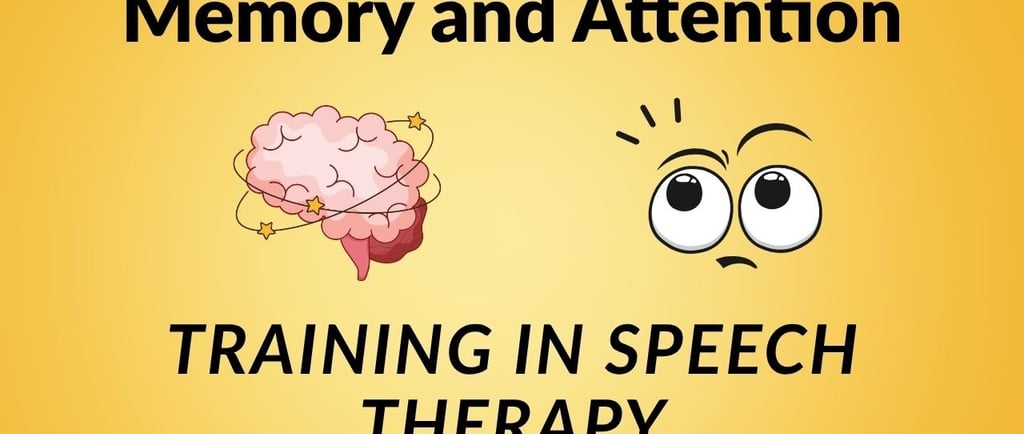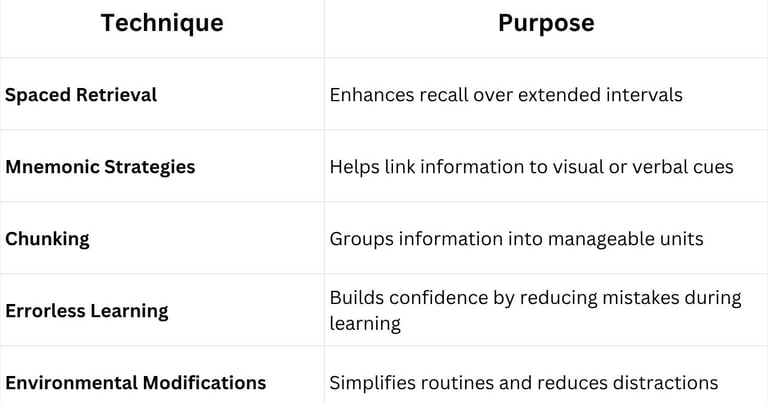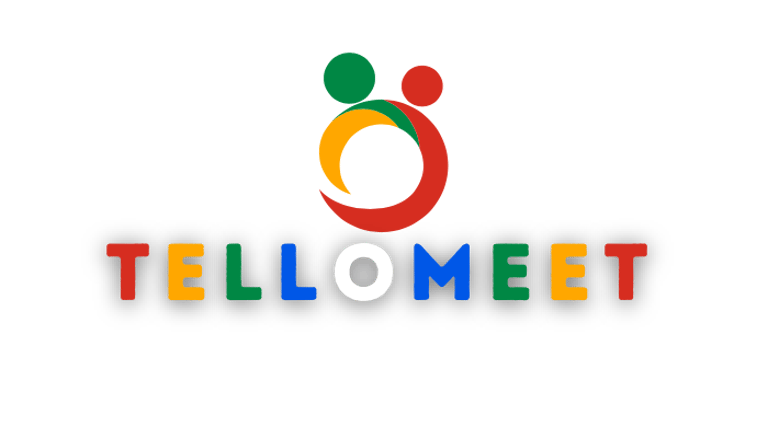Online Speech Therapy Platform
Memory and Attention Training in Speech Therapy
How SLPs Use Cognitive Rehabilitation to Boost Daily Functioning
COGNITIVE-COMMUNICATION DISORDERS
7/23/20252 min read


🧠 Introduction
Memory and attention are essential cognitive functions that influence how we communicate, process information, and manage daily tasks. When these abilities are compromised due to a stroke, brain injury, dementia, or neurological disorders, it can significantly impact a person’s quality of life.
Fortunately, Speech-Language Pathologists (SLPs) use targeted techniques to improve memory and attention through structured cognitive rehabilitation. In this blog post, we’ll explore how speech therapy helps individuals regain these vital cognitive skills — and how platforms like Tellomeet make therapy more accessible than ever.
🧩 What Are Cognitive Deficits in Memory and Attention?
Cognitive deficits in memory and attention can manifest as:
Forgetting names, dates, or recent events
Trouble concentrating during conversations
Difficulty following instructions
Being easily distracted
Losing track of time or daily routines
These challenges can affect communication, relationships, and independence.
🗂️ Types of Memory Speech Therapy Targets
Short-Term Memory
Remembering a phone number or recent instruction
Tasks include word list recall, sequencing exercises, and visual memory drills
Working Memory
Holding and manipulating information (e.g., doing mental math)
Exercises like number repetition or dual-task activities help strengthen this
Long-Term Memory
Recalling past events, names, and facts
Therapy may include storytelling, reminiscence tasks, and association techniques
🧘♂️ Types of Attention Addressed in Therapy
Sustained Attention – Staying focused on a single task
Selective Attention – Ignoring distractions while focusing
Alternating Attention – Switching between tasks
Divided Attention – Managing multiple tasks simultaneously
SLPs use customized activities such as:
Auditory drills with increasing complexity
Paced listening tasks
Sorting and categorization games
Digital tools and apps for real-time feedback
🛠️ Common Techniques Used by SLPs


💡 At-Home Strategies for Support
SLPs also teach compensatory strategies to help with daily life:
Use of memory journals, sticky notes, alarms, or smartphone apps
Setting up structured routines
Breaking complex tasks into smaller, manageable steps
Engaging in brain games and puzzles for mental stimulation
💻 Online Therapy with Tellomeet
Thanks to teletherapy platforms like Tellomeet, individuals can now access expert cognitive rehabilitation from anywhere. Benefits include:
One-on-one guidance from certified SLPs
Convenient scheduling
Interactive digital tools to make learning engaging
Family involvement for better progress at home
✅ Who Can Benefit?
This therapy is ideal for individuals affected by:
Stroke or Traumatic Brain Injury (TBI)
Parkinson’s disease or Alzheimer’s
Multiple Sclerosis (MS)
Post-COVID cognitive fatigue
Age-related memory decline
🌱 Final Thoughts
Cognitive-communication therapy doesn’t just treat memory and attention — it restores confidence, independence, and meaningful interaction with others. If you or a loved one is facing these challenges, early intervention and professional support can make a lasting difference.
Tellomeet is here to connect you with expert speech therapists who specialize in cognitive rehabilitation. Let’s rebuild those pathways — together.
